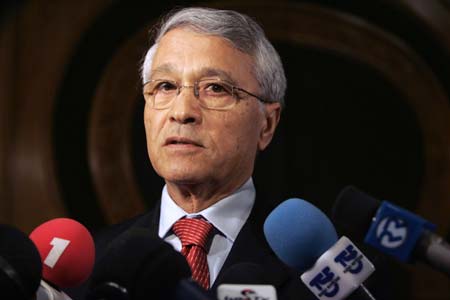The President of the Organization of Petroleum Exporting Countries (OPEC) rejected a call on Monday to set any price band control in face of relentless rise of world oil prices.
"Producing and consuming nations never agree on any price. You remember we talked about 15 (US) dollars and they were saying 13 dollars. We talked about 22 dollars and they were saying 18 dollars. Then we put a price band of 22-30 dollars, but they never agreed with the price band," OPEC President Chakib Khelil told reporters on the sidelines of the World Petroleum Congress in Madrid.

Traders work at the New York Mercantile Exchange in New York, the United States, June 27, 2008. (Xinhua Photo)
OPEC set a price band between 22 and 28 US dollars in March 2000, which was abandoned in January 2005 due to market conditions.
"Then we did away with the price band. Now they say we need to come back to the price band, but we are never going to agree. Let the oil market decide the price," Khelil said.
As oil prices kept rising, which hit a new record high close to 144 US dollars per barrel today, some countries, notably India, had suggested a return to the price band control.

OPEC President Chakib Khelil answers questions at the presidential palace in Algiers June 9, 2008. (Xinhua/Reuters, File Photo)
Khelil, once again, stressed that the price hike had nothing to do with supply, saying the market is fully supplied despite rising demand.
"The demand is being met. We expect high demand in summers, but stocks of 53 days are good enough. There is no lack of supply," he said.
Instead, Khelil blamed the soaring oil prices on speculation, which became especially active in the oil markets since there were no better returns from other instruments due to the US sub-prime crisis and the weakening US dollar.
Khelil warned that the oil prices could rise further to a level as high as 170 US dollars per barrel since demand is set to increase in the summer.
"May be the price may go up to 150 US dollars (per barrel), may be to 170 US dollars (per barrel) as summer driving demand rises. But end of this year, we expect prices to come down," he said.
(Xinhua News Agency July 1, 2008)